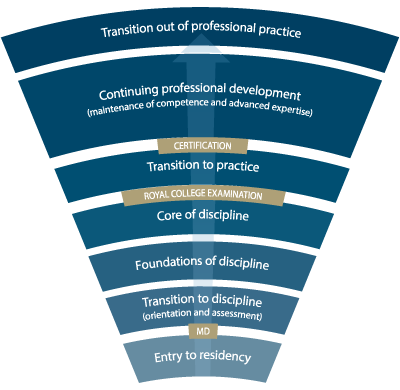Mobile Menu
- Education
- Faculty
- Research
- News & Events
- Divisions
- Equity, Diversity & Inclusion
- About Us
— Dr. Michèle Farrugia, Director, Residency Program
Transitions in the Residency Program
Medical training inevitably includes a lot of moving around: new rotations, new hospitals, new people, new responsibilities. If, as physicians, we hadn’t lived it too, we might find it hard to believe how many transitions there can be! The Royal College recognizes these changes and accordingly labels two of the four stages of residency, in Competence-By-Design (CBD) parlance, Transition to Discipline (first few blocks of PGY1) and Transition to Practice (most of PGY5).

Not always concurrent with changes in CBD stages, there are several points during residency where transitions involve an increased level of responsibility. In the Residency Program, we try to support our residents with additional educational activities through these transitions:
It is our hope that by the end of residency, all our residents have been able to build connections that will enable them to seek advice and mentorship, facilitating the transition to the next stage of their careers, whether that be fellowship training or directly into practice.
